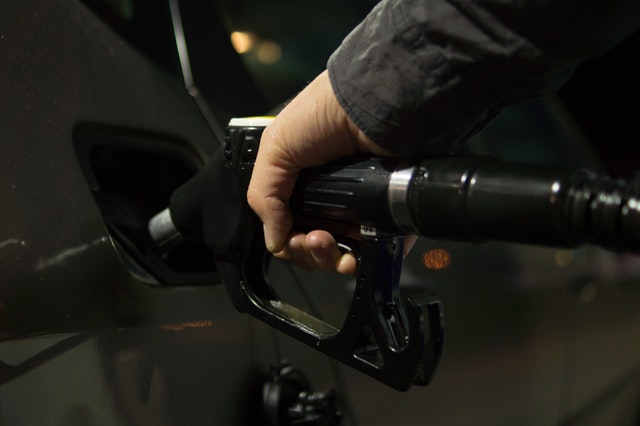As gas prices continue to jump up and down, and as environmental concerns become more and more prevalent, most of us are looking into what we can do to increase our fuel efficiency. Gas is a necessary expense for most of us in Michigan, but that doesn’t mean it has to be unmanageable. If you’re looking into ways to conserve gas and improve your vehicle’s fuel efficiency, here are nine practical tips to get you started:
#1 Keep tires inflated
It’s a good idea to check your tire pressure at least once a month. The less inflated your tires, the more resistance they create against the road. That resistance means your car has to work harder to move along, which drags on your fuel efficiency. To know how much air your tires need, check inside the driver’s side door for an optimal tire pressure.
#2 Keep up on engine inspections
It makes sense that if your car is in good working condition, it’s likely to be more fuel efficient. It’s a good idea to get your engine inspected every so often just as a general best practice, but also to make sure your car is running at top efficiency. Corrosion on the battery and even the slight misalignment of internal components can have a big impact on your fuel efficiency. If you’re forgetful of vehicle maintenance, just schedule your engine check-ups when you get your oil changed. Be sure to have the mechanic clean up any battery corrosion to ensure your car doesn’t have to work any harder than it needs to.
#3 Drive slowly
Studies have shown that once your car gets past 65 mph, the engine has to work exponentially harder to counteract the force of drag on your car, using more fuel than is necessary for the speed. Try to keep your car below 65 mph at all times for optimal fuel efficiently. This might mean driving in the slow lane, but that’s a small sacrifice for a full wallet.
#4 Don’t idle
Studies have also shown that after idling for more than a minute, your car will have used more fuel than it would have needed to shut the engine off, and then turn back on. We’re all guilty of lingering in the car in the driveway in the middle of winter to savor that last little bit of heat, but if you’re trying to save gas, that’s a habit you’ll have to kick. It’s also a good idea to just turn off the engine if you’re stuck at a train crossing or in stopped traffic. It might get you a few honks once people start moving again, but you’ll save a lot of gas in the long run.
#5 Lighten up on that pedal
The harder you accelerate and the harder you brake, the more your car has to work to get to the speed you’re going for. Ease onto the gas pedal on those green lights to save a bit of fuel, and try your best not to stop too abruptly. Hard braking also puts a lot of wear on your brakes, shortening their lifespan.
#6 Use cruise control
The best way to conserve fuel is to maintain a steady speed, and there’s no better way to do that than with cruise control. If you’re driving on a flat expanse of highway, then cruise control is your best friend. It keeps your engine rolling at the same pace indefinitely, which is the best way possible to save fuel.
#7 Never rest your foot on the brake
Even just the slightest pressure on the brake, when you’re trying to go forward, can ruin your fuel efficiency and damage your car over time. It’s easy to do if you’re not paying attention, especially if you’re used to a manual engine, but even resting your foot on the brake lightly can do a lot of damage. It wears out the mechanism within the car, and it causes your car to have to work exceptionally hard to maintain speed.
#8 Use the right oil, and get it changed regularly
Your owner’s manual should specify a recommended motor oil that’s right for your car. Be sure you’re using that exact blend. Anything else might be too thick for your car to push through, or too thin to effectively oil up the gears within your vehicle. What’s more, you’ll want to get your oil changed regularly. The dirtier the oil, the harder it is for your car to cycle it through.
#9 Get rid of the cartop carrier
Finally, if you’re looking to improve fuel efficiency, you’ll want to reduce as much weight in the vehicle as possible. If you take regular weekend camping, hiking, and biking trips, and you have a cartop carrier to hold your gear, make sure you’re taking it off the car during the week. Though it might seem like a hassle, especially if you’re just going to use it again next weekend, it’s a major drag on your fuel efficiency. The cartop carrier messes with the aerodynamic design of your car, adding drag, and the weight of what’s inside it makes you car have to work harder to push it along down the road. For optimal fuel efficiency, you need your car to be as light and aerodynamic as possible.
We hope these tips help you to become more fuel efficient. As a responsible auto owner, you take all the necessary precautions to keep your car safe and running well. Now it is time to take a look at your auto insurance. If you’re thinking of switching companies, be sure to give the insurance advisors at Doyle & Ogden a call at 616-949-9000. As a local insurance company, we work with many A+ rated companies to get you the coverage you need, at a price you can afford. For more information, visit our website to request a free, no-obligation quote.

